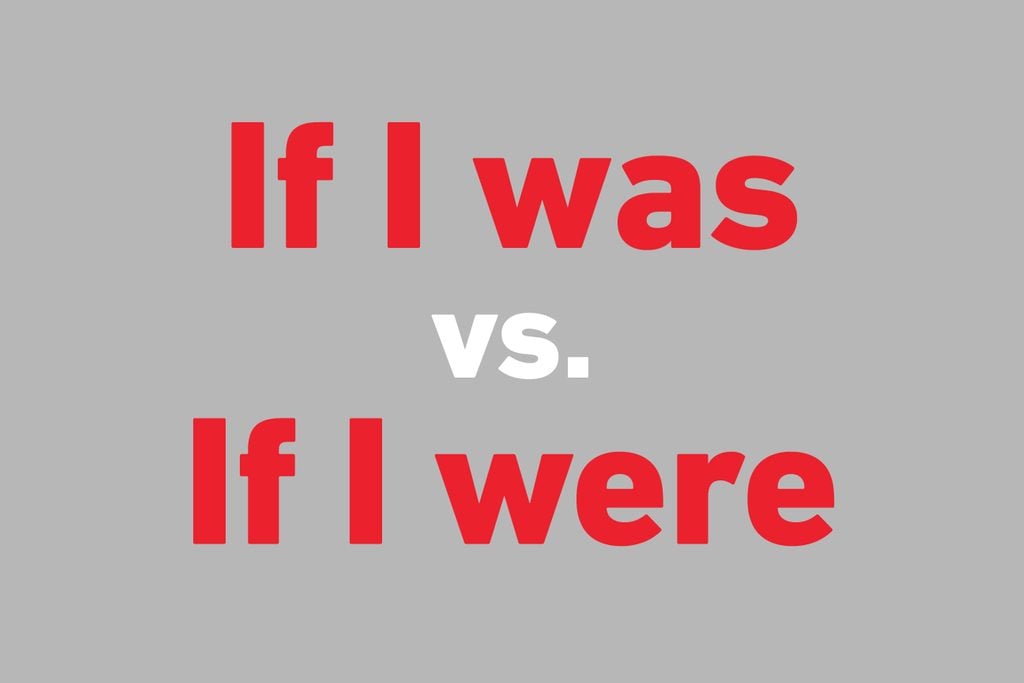“If I Was” vs. “If I Were”: Which One Is Correct?
Updated: Mar. 28, 2022

This grammar rule may seem complicated at first, but if you remember this simple trick, you'll always be right!
No one ever said grammar was easy. If it were, there wouldn’t be a need to explain the 20 most confusing grammar rules. Or should we have said, “if it was easy”?
It’s easy to confuse the two phrases. “If I was” and “If I were” are often used interchangeably even by native English speakers, but which one is correct? The short answer: they’re both right AND wrong. It depends completely on how you’re using the statement.
“If I were”
You use the phrase “if I were…” when you are using the subjunctive mood. You may or may not have heard of this grammatical tense (it’s not taught very often in English studies when English is your first language), but you probably use it all the time. The subjunctive is used to talk about hypothetical situations or things that are contrary to fact. “If I were” is also used when you are wishing for something. For example, “If I were taller, I would play basketball.” The subject of the sentence is imagining a hypothetical situation where they are taller, and imagining about what that would mean for that version of themselves.
“If I was”
Alternatively, you should use the phrase “if I was…” when referring to something that actually happened. For example, “If I was late for curfew when I was a teenager, my parents grounded me.” This variation is a lot less common, but it does come up.
A good trick to decide which you want to use is to determine if the thing you are talking about is something that actually happened or something that you are wishing or imagining might have happened. If it really happened, use “if I was,” but if not, go with “if I were.”
Phew! Our heads hurt just thinking about that. Good thing we can completely stop worrying about these 14 grammar myths our English teachers lied to us about.
